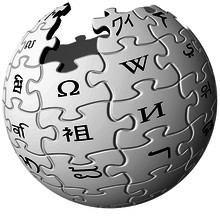Mixing Academia with Wikipedia
The on-line encyclopedia Wikipedia is one of the most consulted sites in the world. As an example, the English and French versions of the article on Québec receive a combined total of 150,000 hits monthly. Thousands of volunteers, who are called Wikipedians, contribute daily to the on-line resource.
Wikipédia is not a static text but an ongoing process which reserves a place for us at the largest intellectual buffet ever served in human history. Jean-Claude Guédon
Because this encyclopedia and its contents are by their very nature collaborative and seek to make all human knowledge accessible, I considered asking the students in my astronomy course to share their knowledge of astronomy through contributions to Wikipedia articles related to this topic. This is how the Wikipedia page Projet : Cégep de Chicoutimi saw the light of day in the French language edition of this resource.
Scholarly Works
Normally when not handed back, student work is held by college teachers for about six months before being destroyed (assignments are held in case of need in discussing a grade change). In the majority of cases, the student’s work has merely served as a vehicle for evaluation by the teacher or as a learning resource for the student.

The Wikipedia logo: ©Wikimedia Foundation
Articles created or modified by students as part of a Wikipedia pedagogical project are accesible to a vast worldwide audience. Furthermore, student work is evaluated by other contributors and if found acceptable, may stay on-line for years and even serve as a point of departure for the work of other Wikipedians interested in the same subject. This is the base of the collective ethic which is at the heart of Wikipedia. This resource is one of the most remarkable examples of social constructionism that I have seen.
Students can consult work already on-line and eventually refine it as they acquire additional knowledge. The production of the immense collectivity called Wikipedia necessitates many kinds of tasks. Proofreading, translation, layout, categorizing, inserting hyperlinks or placing notices on incomplete, poorly written or referenced, promotional, plagiarized or simply ineligible articles provides a task for everyone including students.
The Piranha Effect
As a part of my project, I asked my students to contribute, in one way or another, at least twenty times to the encyclopedia (five linked to astronomy and fifteen linked to subjects of their choosing). A contribution is recorded each time you edit an article or you create a new article. Any type of task was acceptable as long as it was not erased by another contributor.
Certain of my students experienced what francophone Wikipedians call the effet piranha. Starting from a draft of one lineabout a particular group of galaxies in collision called Arp 147, the article ballooned in two days to this!
Problems
Obviously, no project of this complexity is without difficulties. I had to deal with two major groupings of them.
- The first is that writing an article on an open encyclopedia becomes progressively more difficult with the passage of time. The English and French editions of Wikipedia have existed since 1999 and 2001 respectively. The euphoria of the early years has given way to a more mature period. As a result, contributors require that more and more information added to articles be ‘cited‘. Although this is a good thing in principle and helps Wikipedia gain credibility, it makes editing more complex and discouraging for students who see their first efforts rapidly removed by experienced contributors. Worse yet, these erasures are not always explained, leaving the student no wiser as to how to add ‘longerlasting’ information. The goal of writing a ‘good article‘ can be achieved through experience and good guidance on the part of the teacher and, eventually, other Wikipedians.
- Another problem brought on with the passage of time is increasing complexity. Some Wikipedia articles develop more and more lines of code which makes them progressively harder to edit for newcomers. For example, clicking on the edit this page tab of the Québec article mentioned above is a daunting experience and not particularly inviting for the uninitiated. This problem is soon to improve as programmers working on the MediaWiki software, which is the base that Wikipedia uses, seek to make this feature more approachable.
As the complexity of homework increases, the potential for discouragement rises in tandem, particularly for an elective like my astronomy course. I tweak assignments to find the sweet spot between motivation and productivity.
And You?
Do you want to find out more about using Wikipedia in your classes? Wikipedia itself has a page about avoiding common mistakes. The PBS blog on the subject is full of interesting references. Blogs about the subject abound. Using Wikipedia in the classroom seems to be a hot topic for discussion by teachers around the world, but it seems to have fallen under the radar in Quebec. Do you now or have you ever used this resource in your courses? Do you have plans to use Wikipedia in the future? Use our Reader Response Feature below to share your views with your colleagues.

